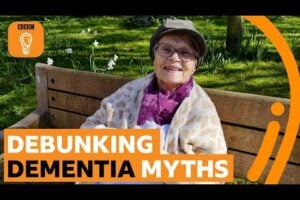Psychologists at the University of Notre Dame have discovered that passing through a doorway triggers what’s known as an event boundary in the mind, separating one set of thoughts and memories from the next.
Your brain files away the thoughts you had in the previous room and prepares a blank slate for the new locale.
Location-Updating Effect
It is referred to as a location-updating effect, and it results in a decline in memory when people move from one location to another.
This may help explain the confusion a person with dementia experiences when they transition from one place to another, as well as when they wander or travel.
Memory & The Event Boundary
Psychology Professor Gabriel Radvansky led the research project. She explained, “Entering or exiting through a doorway serves as an ‘event boundary’ in the mind, which separates episodes of activity and files them away.”
“Recalling the decision or activity that was made in a different room is difficult because it has been compartmentalized.”
Three Experiments
Conducting three experiments in both real and virtual environments, Radvansky’s subjects – all college students – performed memory tasks while crossing a room and while exiting a doorway.
In the first experiment, subjects used a virtual environment and moved from one room to another, selecting an object on a table and exchanging it for an object at a different table. They did the same thing while simply moving across a room but not crossing through a doorway.
Radvansky found that the subjects forgot more after walking through a doorway compared to moving the same distance across a room, suggesting that the doorway or “event boundary” impedes one’s ability to retrieve thoughts or decisions made in a different room.
The second experiment in a real-world setting required subjects to conceal in boxes the objects chosen from the table and move either across a room or travel the same distance and walk through a doorway. The results in the real-world environment replicated those in the virtual world: walking through a doorway diminished subjects’ memories.
The final experiment was designed to test whether doorways actually served as event boundaries or if one’s ability to remember is linked to the environment in which a decision – in this case, the selection of an object – was created. Previous research has shown that environmental factors affect memory and that information learned in one environment is retrieved better when the retrieval occurs in the same context. Subjects in this leg of the study passed through several doorways, leading back to the room in which they started. The results showed no improvements in memory, suggesting that the act of passing through a doorway serves as a way the mind files away memories.
SOURCE:
RESEARCH ARTICLES ON SAGE JOURNALS:
- Walking through doorways causes forgetting: Event structure or updating disruption?
- Walking through Doorways Causes Forgetting: Further Explorations
STUDY AUTHORS:
- Gabriel A. Radvansky, Sabine A. Krawietz, and Andrea K. Tamplin
- Department of Psychology, University of Notre Dame, Notre Dame, IN, USA












This is interesting and makes sense to me. I came across this article while searching for dementia and doorways to better understand why my dementia client freezes his mobility while going through doorways. I guess it must do something to cognitive functions as he gets very disoriented.
Thanks for the information.
Very interesting. I'd love learn more about what they prove in this. There's a reason for everything. If this is the case, it would explain why residents with dementia wander the halls, in living homes.
Makes sense. That's what it feels like is going on.
Is this a joke?
The "MORE INFORMATION" section at the bottom of the article has a clear reference and a link to the original study, just like every research article on this site. It's for real.
No its not a joke it's really true
I learned this concept a while back and since then the way I deal with it is saying out loud to myself on the way to the next room what I need to ask or tell my husband. Sometimes I write it on a notepad so that if I can't remember when I get there I can come back and look. I know it sounds silly but it works
Interesting information.Never thought of that before.
I totally beleave that …. cause when ya get in the other room your mind goes Blank LOL
Does this mean that someone who suffers from this on a regular basis has some form of dementia?
No. From what the researchers are saying, it can happen to anyone and on a regular basis. It just helps explain why transitioning from place to place often adds to the confusion of a person with dementia.
When ever i walk to another room to tell my husband something truley great….when i arrive he asks what im here for, i say im thinking of the hereafter! He said, what does that mean?, i say, im trying to think what im here, after!
Makes sense.
Fascinating